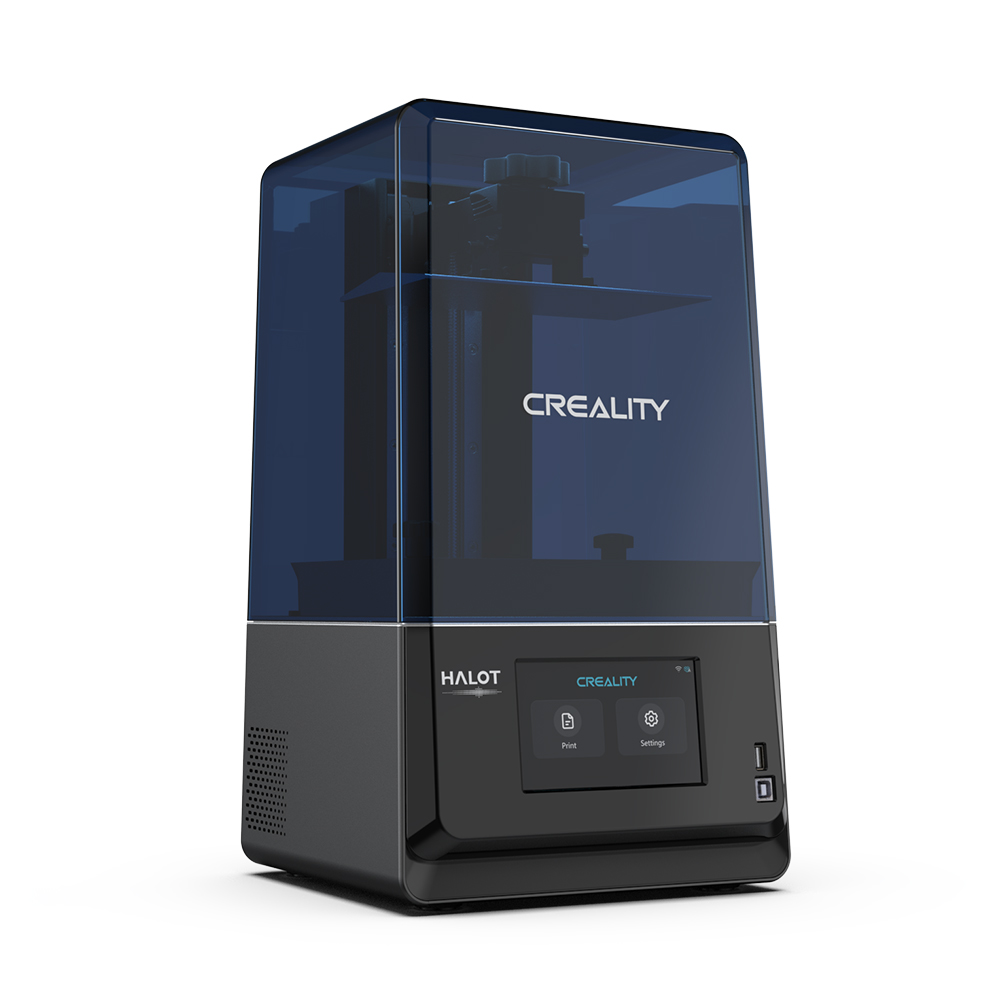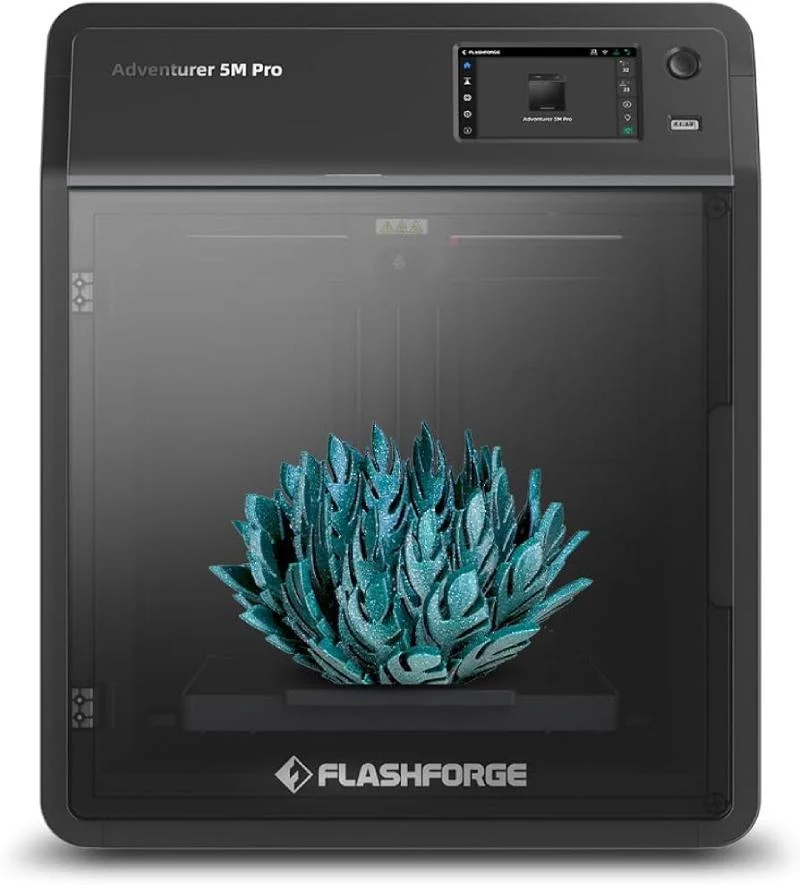Compare Halot One Plus vs Adventurer 5M PRO
Comparison between the best 3D printers
Choose the best 3D printer at the best price. The cheapest 3D printers are here.
Buy a 3D printer here with 3D Fila.
 |
 |
|
| Model | Halot One Plus[BUY Halot One Plus] |
Adventurer 5M PRO |
| Printing Material | Resin | Filament |
| Buy Resin for Creality 3D Halot One Plus | Buy Filament forFlashforge Adventurer 5M PRO | |
| Estimated price | $399,00 | $599,00 |
| Manufacturer | Creality 3D | Flashforge |
| Release Year | 2022 | 2023 |
| Print Volume [mm] | 102x172x160 | 220x220x220 |
| Printer Size [mm] | 236x245x416 | 380x400x453 |
| Weight [kg] | 6,8 | 10,8 |
| Power Loss Recovery | NO | YES |
| Maximum Resolution [mm] | 0,1 | |
| Processor | ||
| Display | Touchscreen 4,3'' | |
| Power Supply | 350 W | |
| Connectivity | USB / Wi-Fi | Wifi / Ethernet / USB |
| Operating systems | Windows, Linux, Macbook | |
| Date of registration in the system | 2022-10-11 | 2024-07-09 |
| Release date | 2022 | 2023 |
| Extra features | Crealitys Halot-One Plus printer stands out for its 4K+ resolution that delivers sharp details and consistent surfaces. It features a fast and responsive 5-inch LCD interface, as well as easy-to-use Halot Box software. It offers Wi-Fi connectivity and remote print monitoring, as well as an integrated air filtration unit, a rare feature in this price range. The Halot-One Plus is designed for the prosumer market, combining high quality with advanced features such as Wi-Fi and air filtration. During testing, it stood out for implementing these features at an affordable cost, while maintaining functionality. It features an attractive design with a UV-resistant blue cover and a robust dual rail system for the Z-axis, ensuring smooth and consistent movements. The large LCD and high resolution of the LCD mask (4320 x 2560) are other strong points, allowing for fine details and textures in prints. | The Flashforge Adventurer 5M PRO features advanced features such as a CoreXY motion system, direct drive extruder, print speeds of up to 600mm/s and maximum acceleration of 20,000mm/s². It features fast nozzle changes, automatic calibration, active vibration compensation, camera monitoring, time-lapse video, HEPA and carbon filters for particles and VOCs, and an intuitive 4.3-inch touchscreen interface. Ideal for printing materials such as PLA, PETG, ABS and TPU. |
| Support for multiple colors and materials (AMS and CFS) | NO | NO |
Notes * |
||
| Cost-benefit | 8 / 10 | 7 / 10 |
| Hardware | 1.2 / 10 | 3.5 / 10 |
| Tela | . | . |
| Print volume | 3 / 10 | 3 / 10 |
| Performance | 9 / 10 | 5 / 10 |
| [BUY Halot One Plus] |
Conclusion |
| In comparing the Creality Halot One Plus and the Flashforge Adventurer 5M PRO, both 3D printers offer distinct advantages that cater to different user needs and preferences. The Halot One Plus is significantly more affordable, making it an attractive choice for those who are budget-conscious yet still desire high-quality prints. Its standout feature is the impressive 4K+ resolution, which allows for detailed and consistent prints. Additionally, it integrates features like Wi-Fi connectivity and an air filtration system, which are typically not found at this price point. However, it has smaller print dimensions and lacks power loss recovery, which may limit its usability for larger projects or unexpected interruptions. Conversely, the Adventurer 5M PRO, while more expensive, offers a larger print volume and robust performance capabilities. Its CoreXY motion system, fast nozzle changes, and automatic calibration enhance printing speeds and efficiency. The inclusion of advanced features like camera monitoring and HEPA filters further positions it as a top-tier option for users requiring versatility and high performance. However, it may be considered excessive for hobbyists who do not need such advanced features. Ultimately, the decision between these two printers should be based on individual priorities. For users who prioritize detailed prints and a more budget-friendly option, the Halot One Plus stands out. However, for those who require advanced functionality, larger print capabilities, and are willing to invest more, the Adventurer 5M PRO is an excellent choice. Both printers receive solid marks for their cost-benefit ratios and performance, making either a viable option within their respective contexts. |

